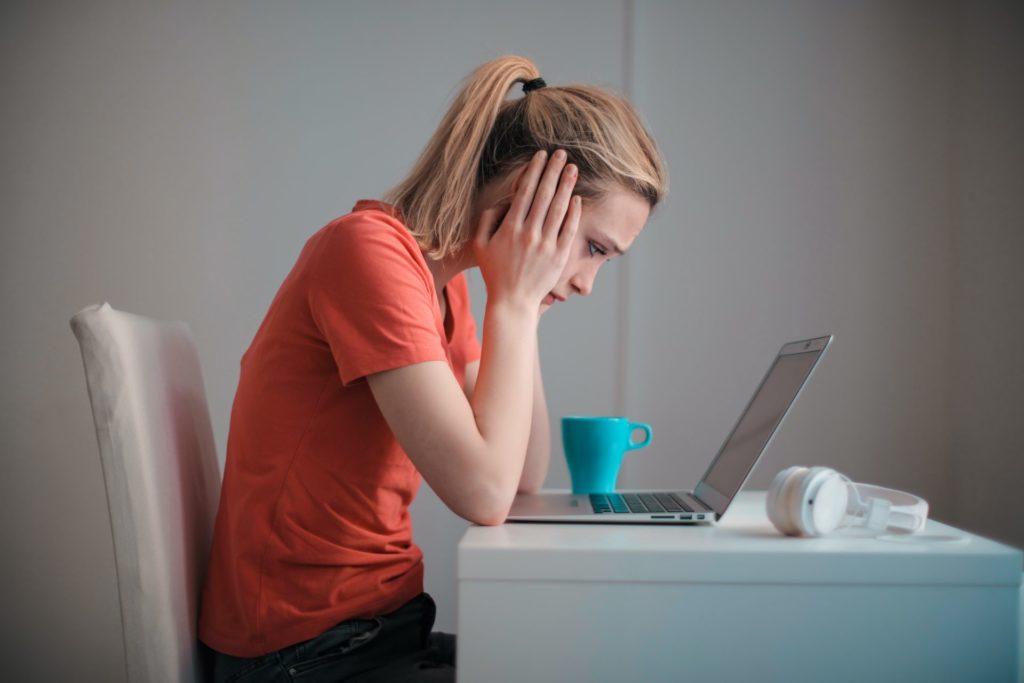Almost half of the students at the University of Antwerp (UAntwerpen) struggled with feelings of depression at the end of the last schoolyear, mainly as a result of the pandemic, according to a recent survey.
Of around 2,000 surveyed students, 45% indicated they felt depressed, in part due to the lingering feeling of the pandemic, as well as the limitation in freedom in terms of social contact with other students, according to researchers of the Centre for Population, Family & Health (CPFH) at UAntwerpen.
"Students had less contact with fellow students, which meant they could only support each other to a limited extent on both a study and emotional level," said Nina Van Eekert, a sociologist who led the study, adding that this largely resulted in 42% of students reporting they felt isolated.
She added that many respondents felt even stronger pressure to constantly be preoccupied with their studies, as the pandemic resulted in hobbies and student jobs no longer taking up some of their time. One student interviewed by Van Eekert said: "I really just feel like someone who sits in a box and has to study."
Related News
- World Mental Health Day: Global shortfall in investments in mental health, says WHO
- 'Twice as many': hospitals can't handle new wave of girls with eating disorders
Despite these damning results, Van Eekert highlighted that students' experience of the pandemic varied and that "while some students eagerly awaited the reopening of cafés and restaurants, others benefited from some social peace."
When it comes to online learning, many indicated that they found the online teaching modes such as a chat function to ask professors questions and classes being recorded helpful, as it gave them the flexibility to follow courses at their own pace, adding that they would like this option to be continued.
Tackling the broader issue
Although students are now able to return to campus full-time and have gained more freedoms outside of schools, the study's researchers argued that it will take time for them to process this period in their life.
One positive effect of the pandemic, however, was that the topic of mental well-being among students was put on the social and university agenda with a certain urgency. Van Eekert stressed that this topic must and will remain relevant.
A recent KU Leuven university study, which showed that around one in seven students (roughly 14%) starts self-harming during their time as students, highlighted that the worsening mental-wellbeing of Belgium's student population should be tackled more generally.
The study's researchers stressed that students need to realise that they are not alone and that "help is definitely available."
This is why UAntwerpen researchers are pleading for the current momentum around mental well-being to actively and permanently be at the core focus within universities and their policies, and for it to be used to provide a long-term solution.
According to the university's students, so far, the discourse on their mental well-being heavily focuses on their study performance, which is not necessarily a measure of how they feel, and in general, the topic is not discussed enough by the university itself.
"We have to arm our students against a society and a labour market in which mental wellbeing is increasingly being challenged. Studying is more than knowledge reproduction alone," Van Eekert concluded.

